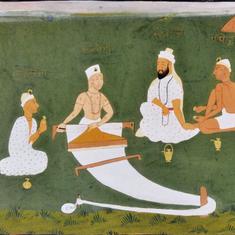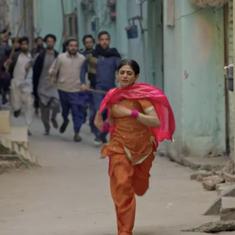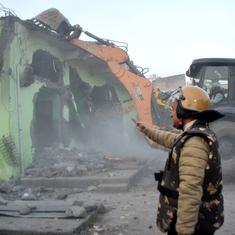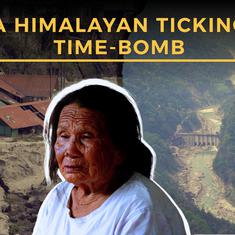The decision of a US federal judge to dismiss a lawsuit challenging California state’s authority to prosecute caste discrimination cases has been welcomed by civil rights groups.
US District Judge Dale Drozd of the Eastern District of California on July 18 rejected arguments from a Hindu advocacy group that enforcing such cases violates religious freedom.
He said that the Hindu American Foundation, a non-profit that says it advocates for Hindus in the United States, lacked standing to challenge the California Civil Rights Department’s high-profile lawsuit against the technology conglomerate Cisco Systems, which alleges workplace caste discrimination against a Dalit engineer.
“This is a historic win,” said Karthikeyan Shanmugam of the Ambedkar King Study Circle, which has collected numerous testimonies showing how caste consciousness and discrimination are manifested in the Indian diaspora.
“It affirms that caste discrimination is a civil rights violation and cannot be shielded by claims of religious freedom,” Shanmugam said.
Roja Singh, President of Dalit Solidarity Forum, said that “the decades-long campaign of caste-based oppression in the US is finally being confronted”.
Singh added: “This ruling by the United States District Court for the Eastern District of California affirms that caste discrimination violates civil rights and cannot be ignored. It marks a critical step toward ensuring that caste-oppressed communities can live and work with safety, dignity, and equality.”
Paradoxical position
The judge rejected the HAF’s claim that the state’s anti-caste enforcement violated their religious freedom, noting that the foundation simultaneously argued that caste discrimination is not an integral part of Hindu beliefs.
“Plaintiffs cannot persuasively maintain that there ‘exists some conflict between one of [their] religious convictions and a challenged governmental action’ precisely because they contend that caste discrimination is not one of their religious convictions,” the ruling noted.
The judge described it a “standing conundrum,” asking, “How can appellants be injured by a policy prohibiting conduct that they have no intention to engage in?”
The court also questioned the HAF’s claim to represent Hindu Americans across the country. While the foundation pointed to 815 donors and 5,000 subscribers to its advocacy platform as evidence of its support base, the judge stated the organisation was trying to represent “a community significantly larger and more diffuse than those found appropriate” for bringing such a lawsuit.
The HAF’s legal challenge centres on California’s 2020 lawsuit against Cisco Systems, when it allegedly failed to protect a Dalit employee from harassment by his Brahmin colleagues.
The lawsuit claimed the engineer “was expected to accept a caste hierarchy within the workplace where he held the lowest status within a team of higher-caste colleagues, receiving less pay, fewer opportunities, and other inferior terms and conditions of employment”.
When the engineer opposed the treatment, supervisors allegedly retaliated by reducing his role, isolating him from colleagues and assigning him tasks that were “impossible to complete under the circumstances”.
The state dropped its case against the two individual Cisco supervisors, Sundar Iyer and Ramana Kompella, in 2023, but continues to pursue its lawsuit against the company.
Responding to the decision, the Hindu American Foundation claimed that “the judge is missing the point”
The California Civil Rights Department “defined Hinduism as having a theologically mandated caste system as an inherent part of the religion”, said Mat McDermott, the organisation’s senior director of communications. “Under the US Constitution, the state, whether the federal government or an individual state has no right to define what Hinduism does or doesn’t mandate. That was our main point.”
He added that the court did not “fully appreciate the real risks posed to Hindus and South Asians, who are associated by American culture with caste”.
He elaborated: “Ultimately, our community bears the brunt of discrimination based on these policies which will be presumed to apply only to the actions of Hindus/South Asians and only enforced against Hindus/South Asians. This means our community will lose real opportunities because they are presumed to be casteist.”
Anti-caste measures
The development also comes amid a growing battle over caste discrimination in American institutions, with Hindu advocacy groups mounting organised opposition to the introduction of anti-caste measures.
Since the Cisco lawsuit was filed in 2020, anti-caste groups have pushed to add caste as a protected category in anti-discrimination policies across the United States. Seattle became the first city to ban caste discrimination in February 2023, while dozens of universities including Harvard and Brown have updated their policies to explicitly prohibit caste-based discrimination.
However, the HAF scored a major victory in 2023 when California Governor Gavin Newsom vetoed legislation that would have made California the first state to ban caste discrimination. The bill had passed both houses of the state legislature with overwhelming support – the Assembly voted 31-5 to approve the measure sponsored by Democratic state senator Aisha Wahab.
But Newsom rejected the bill, arguing that existing anti-discrimination laws already covered caste-based discrimination.
The HAF has repeatedly stated that policies against caste discrimination are unfair to Hindu Americans. On its website, the foundation states. “California’s actions blatantly violate the rights of Hindu Americans.”
The organisation contended that California “has asserted that the caste system is ‘a strict Hindu social and religious hierarchy,’ and therefore an integral part of Hindu teachings and practices” – a characterisation it says is false. The HAF argues this makes “all Hindus suspect in the eyes of the general public” and “encourages widespread discrimination against hiring or promoting of Hindus”.










